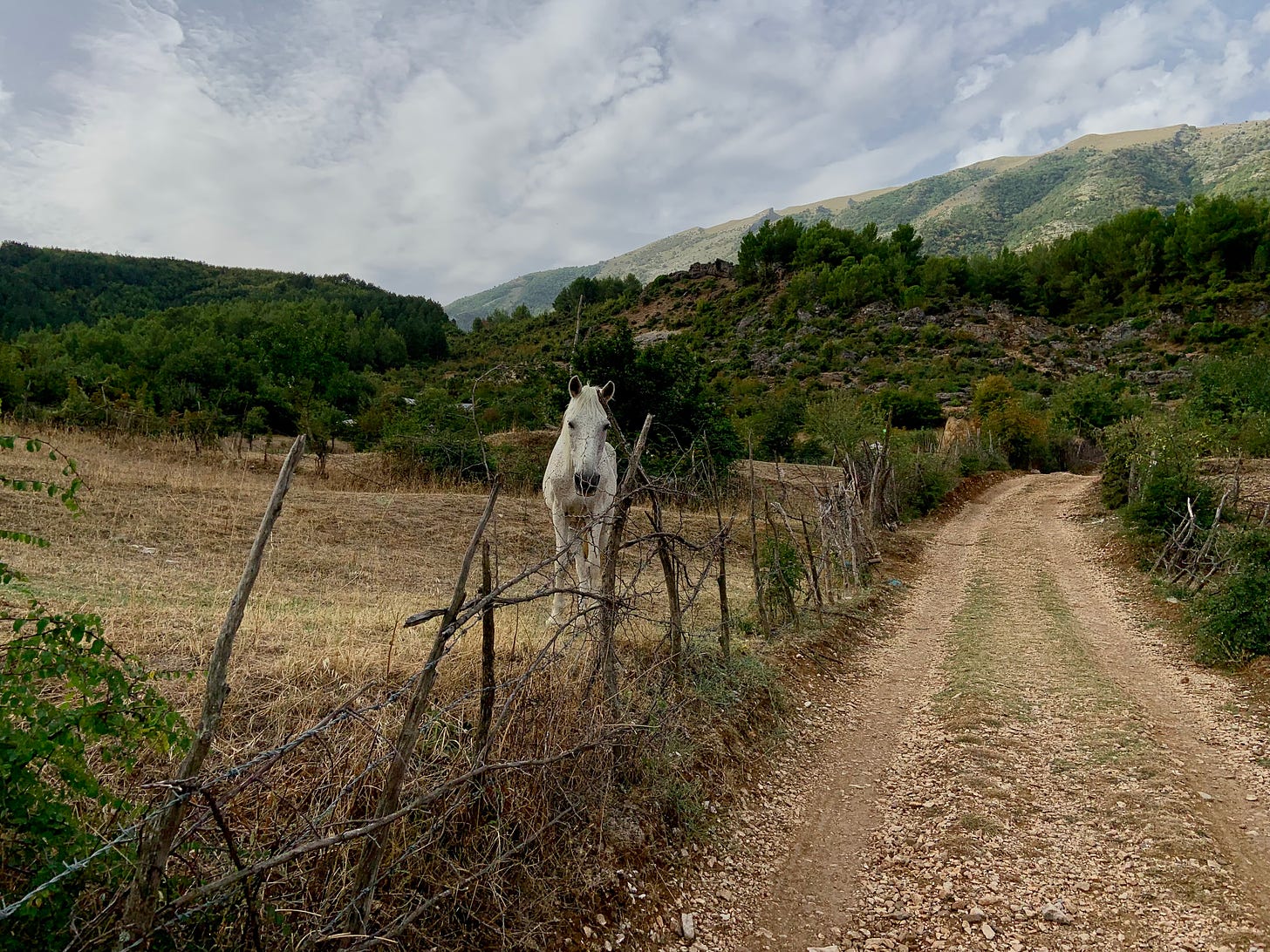
I will admit to again being frustrated by recent reports in the UK press.
On the one hand, astounding Albania is being discovered by people from all walks of life: no longer is this land the sole domain of the intrepid explorer. Overall, this is a good thing for this country of magnificent yet maleficent mountains and sublime yet often spoiled sands.
An increase in the popularity from foreign tourists will lead to investment; we can hope, in infrastructure, meaningful engagement with protecting natural ecosystems, education, and healthcare. Of course, tourism can bring its pitfalls – many of which Albania is already making in its eagerness to welcome, to grow, to be recognised, which also frustrates me – and which is often neglected in the views and reports of those who visit for a few days at a time.
On the other hand, you may have noticed an increase in reporting regarding the nationality of many of those attempting to either seek asylum or access life in the UK for economic means. This is not the first time I have seen a flurry of articles seemingly accusing every Albanian who attempts to reach the UK of having set out with nefarious intentions to capitalise on the drug trade or even human trafficking.
Yet there is now a new element to this lazy reporting: how can Albanians want to leave their country when so many foreigners declare it to be a gem, a jewel in the fading crown of European tourism?
I won’t give the articles the credit of quoting them, their caricatures of Albanians belonging well in the past. However, their argument is simple: if it’s good enough for tourists, why isn’t it good enough to live there?
I’m not here to dispute the numbers of Albanians attempting to make it to the UK, illegally or legally; I’m not here to dispute the numbers of Albanians currently in UK prisons, nor the number that has most recently been deported following the recent agreement designed and delivered by the Home Secretary with the Albanian Government. I’m here to challenge the idea that if a country is an idyllic holiday for a tourist, it must therefore be a paradise to live in.
Imagine suggesting to someone living in a housing estate in London, fearful of how to feed their family today, and heat their home in the days yet to come, that their fear is misplaced and misguided because of the number of tourists who have returned to the shiny capital post-pandemic restrictions? Your fears are misguided because the crowds descending on the Tower of London, Westfield, Hyde Park, and the West End tell us that London is indeed a glorious place to be!
Nonsense.
I have visited, lived, and worked in Albania on and off for 16 years, and most recently, I have spent more time living in Tiranë than I have in London. It is a vibrant, passionate, and beautiful country with much to offer Europe and the world. But it is naïve to think that my experience as a foreigner is the same as an Albanian living in a suburb of the capital, a town beyond the investments, or a remote village. Of course, a tourist from the UK, Germany, or the Netherlands has a great time here – they’re earning considerably more than the average €350 (figures vary) Albanian monthly income.
A significant majority of Albanians I have spoken to about this (interestingly except those who have spent a considerable time abroad) would leave if presented with the opportunity. Even the most patriotic I have spoken to concede that they expect their life would be easier abroad. “Brain-drain”, particularly as Albania continues its path to EU membership, is an ever-present concern: the grass, for many young Albanians in particular, is greener elsewhere.
Most recently, I visited the central south of Albania with my husband, staying in a village just outside of the small town of Përmet. We had a wonderful time – Chri Chri Guesthouse was brilliant, from the food to the finishings; yet I do not live, nor have I lived, daily in that village. Captivating to my iPhone camera, yet challengingly sparse – the village consisted of all but seemingly a handful of properties that were watertight. It reached 43 Degrees Celsius during our visit, and there were no air-conditioned villas here. My experience as a guest in this village is entirely incomparable to those who have built their lives there.

A country is not the sum of its touristic experiences, nor is it the sum of its hardships. To present one as in opposition to the other only creates a tension that cannot be resolved; it insights anger at those who have sought economic security elsewhere (granted, at times illegally), and it patronises those who remain.
It is perfectly possible that Albania is a beautiful country to visit, explore and fall in love with, whilst at the same time understanding that for many Albanians, it is a source of hardship, complexity, and mixed sentiment.
Lazy and intentionally incendiary journalism will never capture this; it doesn’t want to. So please, read between the lines: Albania is more extensive and more complicated than you think. Do come and experience it, if I can be so bold to extend an invitation as a long-term guest myself, but do so with humility – holding the tensions that every country must contend with in one way or another.
You can follow Luke’s Substack here.
Analysis: Albania Falls Prey to Right Wing British Media and Politicians

